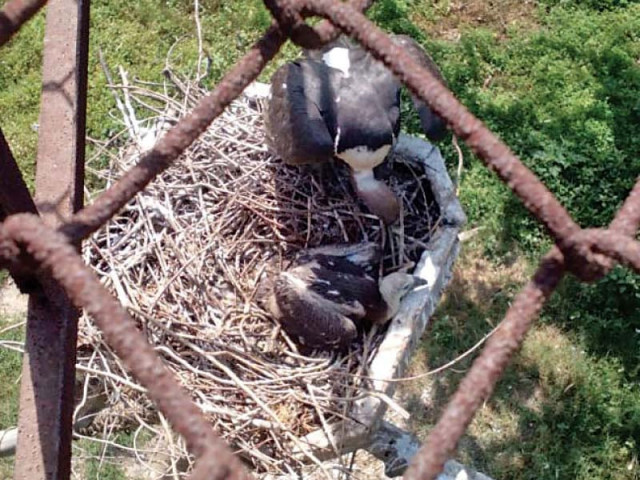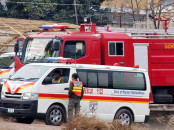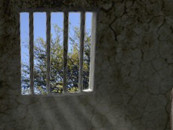Supporting wildlife: Two chicks of dying vulture breed born
WWF-Pakistan’s Changa Manga conservation facility gets new guests

Two chicks were born at the reserve last year as well. PHOTO: WWF-PAKISTAN
The chicks, now over six weeks old, are growing and developing after surviving the critical period of the initial four weeks post-hatching. The addition of these chicks to the existing flock will contribute in achieving a viable population and will give this species a fighting chance to move out of the endangered species list.
Pythons, hawks and others mingle on wildlife day
“Last year, our teams experienced success for the first time ever since the breeding programme was launched back in 2005,” WWF-Pakistan Director General Hammad Naqi Khan said while congratulating the team involved in the project. “This led us to double our efforts this year and successfully breed two chicks, indicating the high standards of husbandry and care protocols in place for these birds at the Gyps Vulture Centre in Changa Manga.”
WWF-Pakistan launched the vulture captive breeding programme in at forest reserve to enhance the understanding of the vulture lifecycle. Land for the centre was provided by the Punjab Wildlife and Parks Department with a seed grant from the environment agency of Abu Dhabi.
Hawk Conservancy Trust (HCT) supported the construction of aviaries and has regularly extended financial and technical support to the conservation work. The facility currently houses 19 white-backed vultures, 15 adults, two juveniles and two chicks.
World Wildlife Day: WWF-P wants youth to help conserve environment
The population of the vulture, gyps bengalensis, has been on a decline and more than 90% of its historic geographic range in Pakistan, India and Nepal has been lost since the early 1990s. This drastic fall is attributed to the use of diclofenac sodium, a non-steroidal anti-inflammatory drug in livestock.
In 2006, WWF-Pakistan successfully lobbied to ban the toxin in Pakistan.
Published in The Express Tribune, March 7th, 2017.



















COMMENTS
Comments are moderated and generally will be posted if they are on-topic and not abusive.
For more information, please see our Comments FAQ